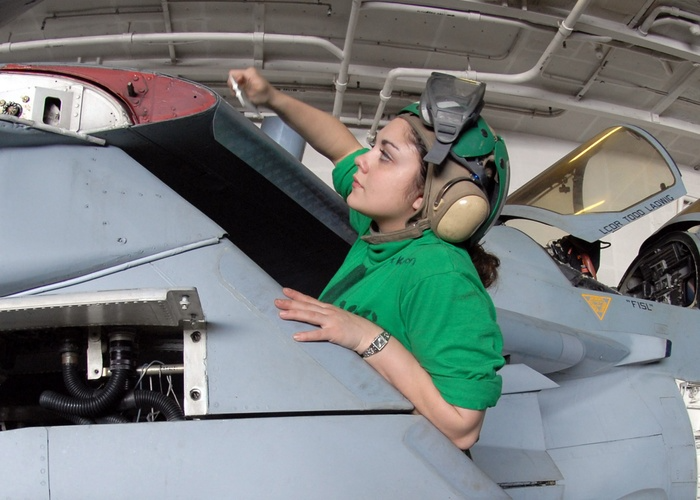Whether an old airframe is on the edge of retirement or a brand-new jet, a robust logistics chain, and parts supply are paramount.
Greenwood Aerospace is your leader in government procurement, aircraft and parts storage and distribution, and military and defense contracting. Our expertise and services include the following:
Procurement of
- Fixed-wing aircraft and associated support
- Aircraft parts & accessories
- Military aircraft parts
- Storage and distribution of parts and supplies to your organization. We will operate as your private warehouse and distribution network.
This is only a sample of our services and capabilities.
Learn more about our services for the defense and military industries. For additional information, you can also contact us here or by emailing sales@governmentprocurement.com.
We’ve talked about this extensively in the past, but America is the world's foremost exporter of military equipment. How much do we export?
About forty percent of all military exports come from the United States. Our next closest competitor, Russia, doesn’t even compare at only twenty percent. In fact, we export more military equipment than the next four nations combined. But once the equipment is procured, how is it taken care of? How is it supported over the years? Considering some of our allies will operate these American-made aircraft for several decades, they need to have some sort of roadmap for success.
That roadmap leads through the U.S. State Department and, ultimately, the President’s desk, although the State Department definitely performs the legwork. But this is more of an FL200 view. Let’s take a look at how our foreign military allies can procure parts to service their fleets of American-made aircraft.
What Programs Exist To Sell Military Equipment To Our Allies?
If you have ever been to an international airshow, and even a few in the continental U.S., the chances are really good that you have seen an F-16, C-130, F-18, or even a CH-47 in foreign operator livery. American aircraft are all over the world, flying in dozens of countries.

But even the best-made, most robust aircraft require enormous amounts of support and work to remain airworthy. Otherwise, your country will end up with a very expensive lawn ornament.
Two programs allow foreign allies to
- Purchase military equipment, new or surplus, from the U.S., either directly from manufacturers or from the surplus stockpile of equipment in the military inventory. This is conducted through the FMS, which is a program sanctioned and approved by the State Department and executed by the Defense Security Cooperation Agency.
- Direct Commercial Sales are deals brokered between an approved foreign operator and an American vendor.
Foreign Military Sales Program
To put it plainly, the FMS program exists to get American-made warfighting equipment into the hands of our most trusted allies. Our allies must be fully vetted before entering into any agreements with U.S. vendors or purchasing surplus equipment directly from surplus inventory.
Direct Commercial Sales
As the name implies, Direct Commercial Sales are agreements entered by foreign governments directly with American vendors. These agreements can work well and give both parties more leverage to negotiate. Here’s the catch: the American vendor lacks the security afforded through an FMS contract. The vendor will be left out to dry if the foreign client fails to pay.
Do FMS & DCS Compete With Each Other?
No, these two programs are not in competition with each other. An American vendor can enter into trade negotiations with approved foreign governments. The U.S. government doesn’t really have a dog in the fight, so to speak. The FMS is generally a safer bet for vendors but has no real benefit for the American government.
If a purchaser wants FMS data after requesting contractor offers, the purchaser must show that commercial acquisition efforts have ended before any FMS data is delivered. The American government may withdraw the FMS offer if the purchaser acquires FMS data and then requests a commercial pricing quote.

What Are The Advantages Of Each Program?
The main advantage of the FMS program is the security afforded to the vendor by the U.S. government. There is a moderate amount of risk involved in every business agreement, but especially those entered with foreign agents. Much of our legal framework that protects businesses is null with a foreign agency, so it is a handshake agreement. If there is a history of reliable payment and negotiations, DCS can be a great option. But for first-time contracts, there is a risk for the vendor. If the customer bows out or refuses to pay, the vendor can be in for a world of hurt. FMS offers less flexibility but much more security on the vendor side of the contract because the payment comes from the U.S. government, not the foreign customer.
What Is The Threshold Of Approval For These Programs?
We have discussed the approval and legal processes of the FMS and DCS, but it bears repeating. Without getting too deep into the process since they are handled on a case-by-case basis. The bottom line is that all potential foreign customers must be allies of the U.S. They must be in good standing with our government and then be approved through the different tiers of the approval process.
Who Approves The FMS & DCS Partners?
The process is multi-tiered in approving potential foreign government customers to legally do business with American equipment, parts, or services vendors. Yes, the nations must still be approved, even for parts and services.
POTUS
The ultimate approval for all allied nations in the FMS or DCS programs is the President of the United States. He can approve or deny any foreign nation at his or her discretion. While he can approve or deny it, he does not participate in the program's framework. That is delegated to the State Department.
State Department
The State Department vets and approves foreign governments from top to bottom. They don’t act alone or without overview; in fact, they must report to the House of Representatives in accordance with §2776. Reports and certifications to Congress on military exports. The State Department running the show for FMS and DCS aims to promote a strong foreign policy aided by providing superior weapon systems for our allies.
How Do Foreign Customers Procure Parts?
Once they have made it through the approval process, foreign customers can bid either through the FMS or as a DCS. Again, they cannot try to game the system by determining pricing first through FMS and then proceeding to DCS with a vendor. Once approved and a procurement path is selected, they can start the process of procuring parts, equipment, or services. However, approval to purchase a vehicle or aircraft is not blanket approval.When a foreign customer purchases a weapon system, such as the T-6 Texan II, the approval only extends are far as the original contract allows. Any services or upgrades down the road must be approved separately.
In the early 1980s, Iran lost approval and could not maintain or upgrade their fleet of F-14A Tomcat fighters. Consequently, the fleet of fighter jets became basically useless. This is an example of how important it is to stay in good standing with the State Department; the fleet of F-14s was bought brand new and cost hundreds of millions of dollars. Each new contract proposal is reviewed and either approved or denied by the State Department, and then the Defense Security Cooperation Agency actually executes and oversees the FMS process.

Parting Thoughts
A major reason why the FMS is used is to nurture long-term relationships with allied nations. This opens up the doorway to joint training activities, joint doctrine development, and a host of other international activities. Under the FMS program, foreign customers are ensured that their equipment or standards meet DoD standards for American service. But under DCS, the foreign customer has more leverage to have a unique piece of equipment tailored to their needs and demands. The choice is ultimately theirs, but all foreign customers must first pass rigorous approval.
Once approved, Greenwood Aerospace is your trusted partner in procuring parts and services for your foreign fleet of aircraft. To start the process, request a quote today, or give us a call! We’ll help through every step of the way.


.svg)


.png)


